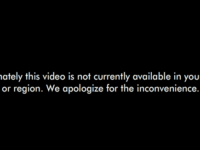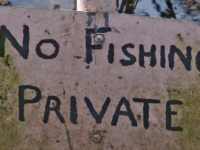Bill C-18, the Online News Act, received royal assent yesterday, but any celebrations by the groups who lobbied for unprecedented government intervention into the news sector must surely have been tempered by the reality that quickly emerged. Meta confirmed that it would block news sharing from its Facebook and Instagram platforms in Canada, while Google met with Canadian Heritage Minister Pablo Rodriguez to see whether a compromise could be reach to avoid a similar outcome. The end result – at least for now – is a legislative mess that leaves no clear winners with Meta downgrading its platforms in Canada, Canadians cut off from their ability to share news on popular social media platforms, Canadian news outlets losing their second most important source of referral traffic, and the government looking to have made an epic miscalculation for having ignored the risks it created by establishing a mandating payments for links system with uncapped liability for the Internet companies.
Post Tagged with: "meta"
Tough Talk, Empty Answers: How Heritage Minister Pablo Rodriguez is Propelling Canada’s News Sector Toward the Bill C-18 Cliff
Canadian Heritage Minister Pablo Rodriguez appeared last night before the Senate committee studying Bill C-18, facing repeated questions about how his government will respond if Internet platforms such as Facebook block news sharing in response to bill’s system of mandated payments for links. Much like Prime Minister Trudeau earlier in the day, Rodriguez had few answers, relying instead on tough talk about not backing down against the tech companies or warnings that even talking about the risks was playing into their hands. Yet the reality is that the government has boxed itself into a corner with fatally flawed legislation that could leave Canadian news organizations with lost revenues and Canadians with reduced exposure to reliable news.
Meta to Test Blocking News Sharing on Facebook and Instagram in Canada in Response to Bill C-18’s Mandated Payments for Links
Meta has announced that will test blocking news sharing in Canada on its platforms Facebook and Instagram in response to Bill C-18’s system of mandated payments for links. Even as some have suggested the position is bluff, the company has not wavered for months as this emerged as the most likely end game. Back in October, it said it was considering blocking news and in March it confirmed it. The government now says it won’t give in to “threats” but the reality is that Canadian Heritage Minister Pablo Rodriguez more accurately described it last year as a “business decision” when he appeared before the Heritage committee. Given that Facebook says news is responsible for only three percent of content on user feeds and that it is highly substitutable (ie. users spend the same amount of time on the platform whether scrolling through news or other content), the business choice seems like an obvious one.
The Government’s Epic Bill C-18 Miscalculation on Mandating Payments for Links
Meta executives faced another round of criticism at the Standing Committee on Canadian Heritage yesterday, yet beyond the usual outrage emanating from MPs that have labelled critics as racist or dismissed online news outlets at not news, was the growing realization that the company’s plan to block news sharing in Canada if Bill C-18 passes in its current form may not be a bluff. Meta has adopted a consistent position for months that the bill creates the prospect of unlimited liability for linking to news articles, the vast majority of which are posted by the media companies themselves. Paying for those links is viewed as uneconomic and untenable by the company, which would rather exit news sharing altogether in Canada rather than cough up millions of dollars for links.
The Government’s Fishing Expedition: Why the Bill C-18 Motion Establishes a Dangerous Precedent For Those Who Dare to Oppose Legislation
The Canadian Heritage committee moved ahead yesterday with a Bill C-18 motion that should strike fear in any group that participates in the political process. In a chaotic few minutes toward the end of the meeting, Liberal MP Anthony Housefather introduced a new motion that removed some of the worst of the authoritarian-style provisions previously proposed by the Parliamentary Secretary to the Minister of Canadian Heritage that demanded the private communications of potentially thousands of Canadians. However, it still retained mandated document disclosures that should send a chill into companies, NGOs, and anyone else that engages in, or strategizes about, government legislation. Calling executives into committee is not only appropriate, it is often essential. So too is following up with document demands based on the discussion. But in this case, the Heritage committee is engaged in a fishing expedition based largely on opposition to government legislation.


Recent Posts
 The Law Bytes Podcast, Episode 231: Sara Bannerman on How Canadian Political Parties Maximize Voter Data Collection and Minimize Privacy Safeguards
The Law Bytes Podcast, Episode 231: Sara Bannerman on How Canadian Political Parties Maximize Voter Data Collection and Minimize Privacy Safeguards  The Law Bytes Podcast, Episode 230: Aengus Bridgman on the 2025 Federal Election, Social Media Platforms, and Misinformation
The Law Bytes Podcast, Episode 230: Aengus Bridgman on the 2025 Federal Election, Social Media Platforms, and Misinformation  The Law Bytes Podcast, Episode 229: My Digital Access Day Keynote – Assessing the Canadian Digital Policy Record
The Law Bytes Podcast, Episode 229: My Digital Access Day Keynote – Assessing the Canadian Digital Policy Record  Queen’s University Trustees Reject Divestment Efforts Emphasizing the Importance of Institutional Neutrality
Queen’s University Trustees Reject Divestment Efforts Emphasizing the Importance of Institutional Neutrality  The Law Bytes Podcast, Episode 228: Kumanan Wilson on Why Canadian Health Data Requires Stronger Privacy Protection in the Trump Era
The Law Bytes Podcast, Episode 228: Kumanan Wilson on Why Canadian Health Data Requires Stronger Privacy Protection in the Trump Era
Michael Geist on Substack
Get Postings via Email
Open Books
Broadcasting and Telecom Legislative Review Panel Report (BTLR)
Archives
| S | M | T | W | T | F | S |
|---|---|---|---|---|---|---|
| 1 | 2 | 3 | 4 | 5 | ||
| 6 | 7 | 8 | 9 | 10 | 11 | 12 |
| 13 | 14 | 15 | 16 | 17 | 18 | 19 |
| 20 | 21 | 22 | 23 | 24 | 25 | 26 |
| 27 | 28 | 29 | 30 | |||





